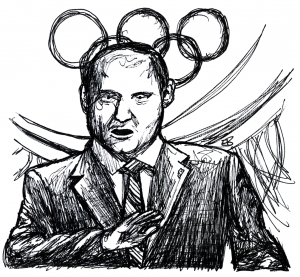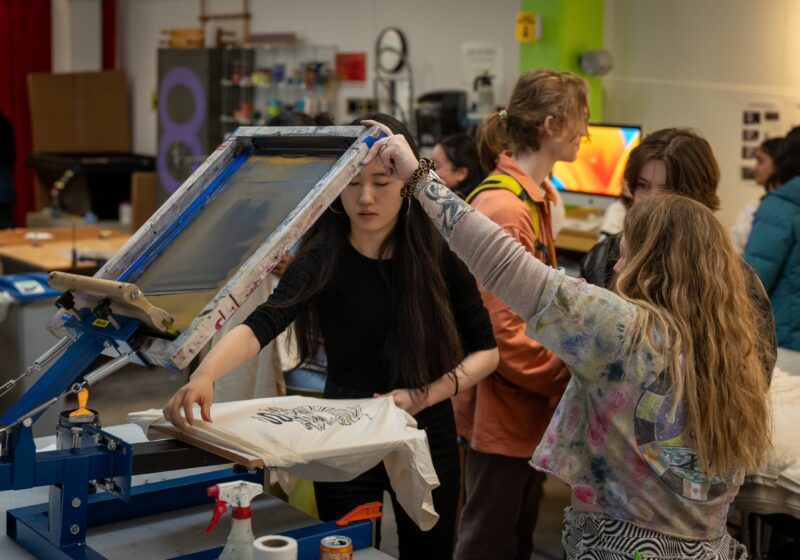Sochi. A city which you’ve probably never heard of until only a few months ago but have heard mentioned a dozens times since. The infamous location for the 2014 Winter Olympics in Russia has drawn an immense amount of attention, not just because it’s the Winter Olympics, but because of its price, location, lack of preparedness, and vulnerability as a terrorist target. These issues beg the question: Why hold the most publicized sporting event in the world in this location? The answer: the geopolitical appearance of Vladimir Putin.
The Olympics have been used time and again over the last century to send a message to the world. Be it the 1936 Berlin Olympics in Nazi Germany, the 1980 Moscow Olympics in the Soviet Union, or the 2008 Beijing Olympics in China, the games have become a representation of the host nation’s prestige. As the strongman leader of post-Soviet Russia, Putin has the historical precedence to use the games to show the world that his nation is again a world power. However, the history of the Games’ message still does not answer the question of why Putin picked Sochi (note that the above Games took place in their corresponding countries’ capital cities).
Sochi, a resort city in the south of Russia, known for its relative warmth compared to the rest of the nation, is not the go-to locale for the Winter Olympics, and is obviously not the capital of the resurging Federation. These observations, coupled with Sochi’s proximity to the Islamist-extremist and terroristic/rebellious province of Chechnya, as well as the record $51 billion US dollars that was needed to compensate for the city’s lack of necessary infrastructure and security for the games, prompts a search for any reason why one would hold the games there.
Putin, who has reigned over Russia since 2000, has faced an unstable economy at home and a dwindling influence abroad. The difficulties of hosting the Olympics at Sochi were certainly foreseen by his administration, but they only added to the overall message that Russia is sending to the world: Russia can handle adversity and is in charge of the Central Eurasian region. The president has almost total control of the nation’s economy and thus can command the resources necessary for such a massive undertaking. $51 billion dollars, 50,000 soldiers, and 98 events later, the Games went relatively unhitched but not perfectly.
Even after these incredible preparations, numerous facilities meant to support the Olympics were not completed, most notably a plethora of hotels in the area. Yet in comparison to the potential failures that could have happened, lacking guest accommodations seems trivial. On this front, Putin has proven his nation’s abilities, but this is only a fraction of the Game’s message. Sochi’s location, several hundred miles from both the rebellious regions of Russia and the nation of Georgia (which Russia invaded in 2008), is absolutely essential to President Putin’s second assertion: Central Eurasia is once again firmly under the Russian sphere of influence.
After the collapse of the USSR in 1991, Russian influence began to dwindle in its historical backyard. As Putin presided over a resurgence of (gilded) economic and military strength, he has now begun the process of regaining Russia’s international influence, and the Sochi Olympics are a soft power approach to handling this. Though this regaining of influence is not complete (i.e. the situation in Ukraine), Putin has, on many fronts, reclaimed a position of significance in international affairs for the Russian Federation. From the Syrian Civil War to the Iranian nuclear deal, Russian opinion has greatly affected the outcome of recent international diplomatic events.
The Olympics in Sochi are a clear representation of Vladimir Putin’s intention to remain a force to be reckoned with regionally and internationally. However, the Games also demonstrate his recklessness in this pursuit. Any leader who is willing to commit the time and resources to successfully hold an event of Olympic proportions in an unstable, dangerous region is a very driven, and perhaps dangerous individual. As the 2014 Olympics becomes a memory, its effects will become more apparent, and the outcome of Vladimir Putin’s attempts to revive Russian greatness will emerge. Sochi is only one part of Putin’s overarching plan, but with such a high cost and such publicity, it will be known as an essential step in the process.
Sweely is a member of
the class of 2017.







